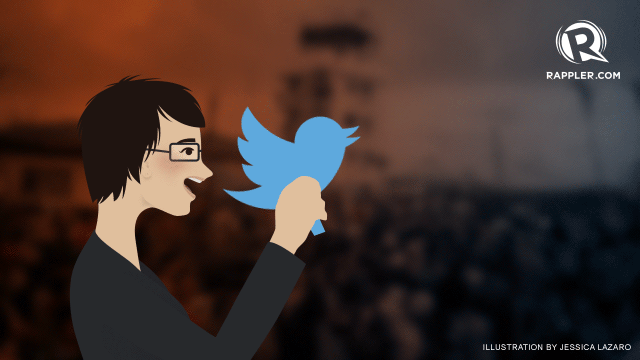SUMMARY
This is AI generated summarization, which may have errors. For context, always refer to the full article.
 I’m nobody. I’m not a public figure. I’m not in the top tier of an organization, and I don’t exactly brim over with clout. And just a few years ago, my opinions and observations would only be heard by (and, if lucky, actually matter to) close friends and family.
I’m nobody. I’m not a public figure. I’m not in the top tier of an organization, and I don’t exactly brim over with clout. And just a few years ago, my opinions and observations would only be heard by (and, if lucky, actually matter to) close friends and family.
The same would apply to most of you. Most of you are nobodies too, and in past years have embraced the idea that your influence thrives just within a few miles’ radius.
And then social media seeped into our society, and suddenly everyone’s thoughts and the minutiae of their lives became easily available to us – whether we liked it or not. Social media made it staggeringly easy for us to offer information and have complete strangers receive it.
Ups and downs
The more optimistic of us hailed social media as something that has done a lot of good in this world. Without it, we wouldn’t have such wide-reaching citizen relief efforts in times of disaster, such as #RescuePH and #ProjectAgos during Super Typhoon Haiyan; or be able to spread the word about bigots such as racist Clippers owner Donald Sterling and anti-vaxxer actress Jenny McCarthy; or learn the earthshaking revelations Edward Snowden offered on the US’ National Security Agency, or the secrets Wikileaks’ Julian Assange offered behind practically every world power.
But amid all this good, it’s clear that social media can be accused of countless flaws. For one, it has become the repository for some of the most annoying material currently existing. Take the selfie – vapid, vain, yet easily viral, single-handedly encapsulating how pointless and self-serving social media can be (though duck faces and #KathNiel come tantalizingly close).
Social media can also be blamed for the proliferation of misinformation. McCarthy’s anti-vaxxer movement, for instance, would not have gained as much ground if it weren’t so easy to share faulty articles on Facebook. The Triangle of Life hoax would also have remained a hoax if it hadn’t spread so aggressively online, putting people in even greater danger during already deadly earthquakes.

The annoying advantage
But you know what? I’m glad social media is as annoying and loose-lipped as it is. I’m glad that our newsfeeds are bombarded with pictures of people’s lunches, that chain mail hoaxes have found new life on more connected online platforms, and that the most inane arguments can easily gain ground with a single tweet.
Before you react violently, I’m glad because these instances belie how much more potent freedom of expression has become in our society. We, regardless of our being nobodies, are able to say whatever we want, and be assured that there is someone out there listening. This is one of the most precious abilities every human can, and should, have. It’s big enough of a deal that we live in a time when speaking your mind is embraced and encouraged by a relatively larger chunk of the world. It’s a delicious plus that we can do so so efficiently and effectively.
And yes, that freedom of speech also includes others sounding off on stuff I am vehemently against, from anti-GMO activists who instantly equate well-meaning science with poison or corporate evils, to Facebook users who would rather share prayer graphics than go out and actually help during times of disaster. As Evelyn Beatrice Hall said, “I disapprove of what you say, but I will defend to the death your right to say it.”
Springing into action
But what about the ethical implications of letting wrong and bigoted information spread? In here lies the true beauty of the Internet in general, and social media in particular. Nothing is stopping you from speaking up.
Read something that you find detrimental to social progress? Start a discussion rich in reason. Counter their opinions. Argue for your side. Present the (empirically based, logically sound) facts behind your stance. Do what you can to pulverize the repugnant things they’re saying against the LGBT, or the poor, or people of certain religions or with no religion.
That’s what makes social media and freedom of expression such a fantastic pairing: it thrusts us right into the heart of humanity’s greatest and most difficult issues, and allows for nobodies like us to say and do the kind of things that can change the world for the better.
I can already imagine some naysayers posing that this constant argumentation is too tedious and messy an affair. But then again, in a world that grows exponentially more diverse and knowledgeable by the second, what isn’t messy and tedious? When has positive change ever been a quick, clear-cut process, when evolution – both biological and cultural – is the complete opposite?
Be somebody
So when you hear a person complain that social media is just another technological doohickey made for annoying selfies, distracting Buzzfeed quizzes, or infuriating Game of Thrones spoilers, repurpose the freedom social media provides to do good.
Again, if people were given the freedom to do annoying, distracting, and infuriating things, that means you too were equally given the freedom to do constructive, informative, and altogether helpful things.
I’m a nobody, but since social media came along, I’m doing my best not to be. I can only hope that you will, too. – Rappler.com
Marguerite de Leon is a social media producer for Rappler, and member of secularist organization Filipino Freethinkers.
Add a comment
How does this make you feel?
There are no comments yet. Add your comment to start the conversation.